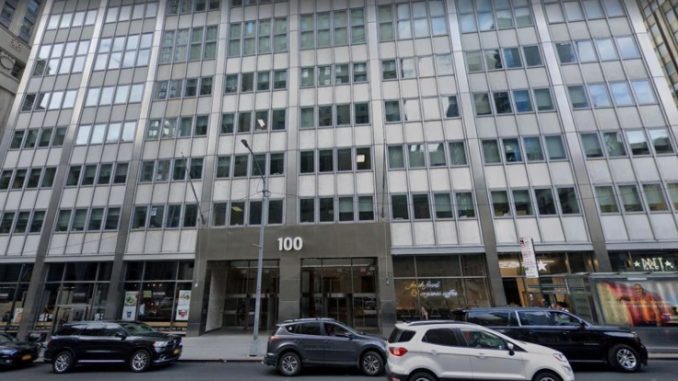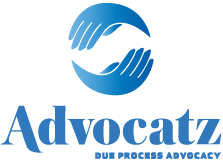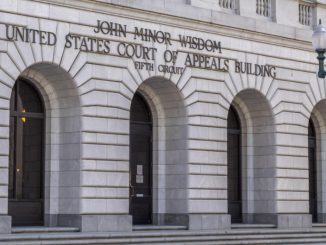
Corruption, discrimination and random disciplinary procedures which deny Constitutional rights have been, and are, rampant in the NYC Department of Education. We have documented many individual cases of wrong-doing without accountability to the Department since about 2003, and we have posted our research into legislation and fraud before 2003 on the blogs I list below.
I never cease to be amazed at the continuous lies and fraud of the Department after they lose a case, pay thousands of dollars in compensatory damages, and then continue to do what they were found guilty of. The Gulino Litigation is one of those cases.
I posted the litigation on on my blog in 2012.
The payout will be enormous. I’ve read all of the papers, and found substantiation of discriminatory practices since the beginning of the case in 1996, which has been followed by delays, extensions of time, and left Plaintiffs without a resolution. Meanwhile, has discrimination and fraud stopped? No, not at all.
There is something to be said about working for the NYC DOE or another City Agency where the money is taxpayer money and does not come directly out of the pocket of, let’s say, the Chancellor, a principal, or anyone else. So who cares? The thinking is, “the pot is huge, and everyone takes from it, so why not me?”
The culture of fraud and discrimination is continued, because there are no consequences or accountability for breaking rules, violating the law, or denying someone’s rights.
This has to change.
Editor, Parentadvocates.org
Editor, New York Court Corruption
Editor, National Public Voice
Editor, NYC Public Voice
Editor, Inside 3020-a Teacher Trials
Pictured: New York City Law Department, 100 Church Street, Manhattan
Gulino v. Board of Education Litigation
www.gulinolitigation.com
In 1996, plaintiffs filed a lawsuit against the New York City Department of Education (“DOE”)1 and the New York State Education Department (“SED”), alleging that the DOE and SED were violating Title VII of the 1964 Civil Rights Act, as amended 42 U.S.C. § 2000e, et seq. (“Title VII”) by requiring New York City public school teachers to pass the Liberal Arts and Sciences Test (“LAST”) to keep or obtain permanent teaching positions. Specifically, plaintiffs alleged that the LAST had an unlawful disparate impact on African-American and Latino teachers who took the test. Go here for more information regarding the claims asserted by plaintiffs. The SED was dismissed from the case following trial in 2006.
- Liability Ruling
On December 5, 2012, the Court found that the New York City Department of Education (“DOE”) failed to establish, as required by federal law, that the Liberal Arts and Sciences Test (“LAST”) was related to the job of teaching. The LAST was an exam created and administered by the New York State Education Department (“SED”) to teacher candidates. Test takers were required to achieve a passing score on the LAST in order to receive state certification to teach in New York State public schools.
The Court also found that because the LAST was not shown to be related to the job of teaching, the DOE had violated Title VII by requiring plaintiffs to pass the LAST in order to receive a teaching license. The plaintiffs’ complaint in this case is not based on a theory of intentional discrimination. Rather, the plaintiffs have alleged, and the Court found, that the DOE was liable for making employment decisions based on the state’s exam under a “disparate impact” theory of discrimination.
On June 5, 2015, the Court found that the LAST exam administered after February 13, 2004 was also invalid and that the DOE violated Title VII by requiring claimants to pass the LAST to receive a teaching license.
- Relief Rulings
In the same order in which the Court found that the DOE had violated Title VII by using the LAST administered prior to February 14, 2004, the Court also found that the plaintiffs could seek injunctive relief benefiting the entire class. In a subsequent order dated August 29, 2013, the Court further found that plaintiff class members are entitled to seek individualized monetary damages, such as backpay, and individualized injunctive relief, such as eligibility for in-system seniority. Finally, on June 18, 2014, the Court amended the class definition so that the relief rulings apply to African-American and Latino individuals employed as New York City public school teachers on or after June 29, 1995, who failed the Liberal Arts and Sciences Test (“LAST”) given on or before February 13, 2004, and as a result either lost or were denied a permanent teaching appointment.
On December 28, 2015, the Court entered an injunction: (1) prohibiting the DOE from making any employment decisions based upon the LAST administered on or after February 13, 2004; and (2) providing individuals, who have satisfied certain enumerated requirements for an initial certificate other than passing the LAST-2, with the opportunity to become initially certified for the limited purpose of seeking employment with the DOE.
1 The DOE was also previously referred to as the “BOE” in numerous court filings, many of which are linked to this website.
City Faces Largest-Ever Lawsuit Payout To NYC Teachers Affected By “Discriminatory” Certification Tests
Sophia Chang, Gothamist, November 19, 2021
A massive decades-long lawsuit against New York City over the use of two teaching certification tests is winding to a conclusion, with nearly $660 million and pension benefits in damages awarded to plaintiffs in the class action lawsuit claiming the tests were discriminatory against Black and Latino teachers and prevented them from achieving full seniority, pay and benefits.
The city could be further liable for hundreds of millions of dollars more in damages yet to be determined, with an estimated maximum payout of about $1.8 billion for the 4,700 plaintiffs in the Gulino v Board of Education class action suit — in what city officials say is the highest amount of damages that New York City has ever paid.
In 1996, three teachers filed the lawsuit against the city and state education departments, claiming that the mandated certification tests—the National Teacher Examination (NTE) and its successor the Liberal Arts & Sciences Test (LAST)—had a “disparate impact on African-American and Latino test takers.”
White test-takers passed the tests 83.7% of the time while Black test takers passed at 43.9% and Latino test takers passed at 40.3% of the time, according to the complaint.
No matter what subject a New York City teacher taught—whether it was preschool, special education, or athletics—they were required to pass these certification tests, which have been described as covering “scientific, mathematical, and technological processes; historical and social scientific awareness; artistic expression and the humanities; communication and research skills; and written analysis and expression.”
“The test obviously didn’t test anything relevant to the jobs that people were doing or being hired to do. But the city used it in many cases to demote people,” said Joshua Sohn, the plaintiffs’ lead lawyer.
Teachers who didn’t pass were paid less, denied full pension, and many were relegated to substitute status, according to a court brief filed with the Second Circuit of Appeals in 2007: “Even though they never achieved a passing score on the LAST, many teachers continued teaching full-time in the City’s schools for many years, albeit at salaries well below that of their certified colleagues. And those teachers who ultimately achieved a passing score, remained at a salary step level far below that of their colleagues with equivalent seniority in the City school system. In practice then, the City and State used the LAST not to determine whether teachers should be allowed to teach, but rather to determine their level of compensation and benefits.”
The state eventually stopped requiring the tests as part of teacher certification process after a district court found that the LAST had not been properly validated.
“It is time to bring this longstanding case to a close and we are pleased the parties have agreed on a schedule for payments,” said Nicholas Paolucci, spokesperson for the city’s Law Department, in a statement. The damages are based on calculations of backpay, he said.
The judgments determining specific damages for the first round of individual hearings for nearly 350 plaintiffs became final in mid-September after the city declined to appeal, Sohn said.
The state was dismissed from the lawsuit in 2006, leaving the city solely liable as the employer under federal discrimination laws. Still, city officials said the tests were developed by the state which then required that New York City administer these certification tests or “it would have faced State enforcement action and stood to lose billions in state education funding. (The city) had no choice but to comply with the state’s certification requirement,” according to the Law Department.
The impact of these tests meant that “generations of Black and brown New York City public school teachers, they were sort of denied access to the profession,” Sohn said.
The teachers who never passed the certification tests “have been sort of per diem teachers for the last 20 years, you know— making exponentially less money and having no benefits, no health insurance, no pension, no nothing from the city, but still teaching more or less full time,” Sohn added. “And others who wanted to be teachers their whole lives found that they couldn’t do it and had to change careers.”




Be the first to comment